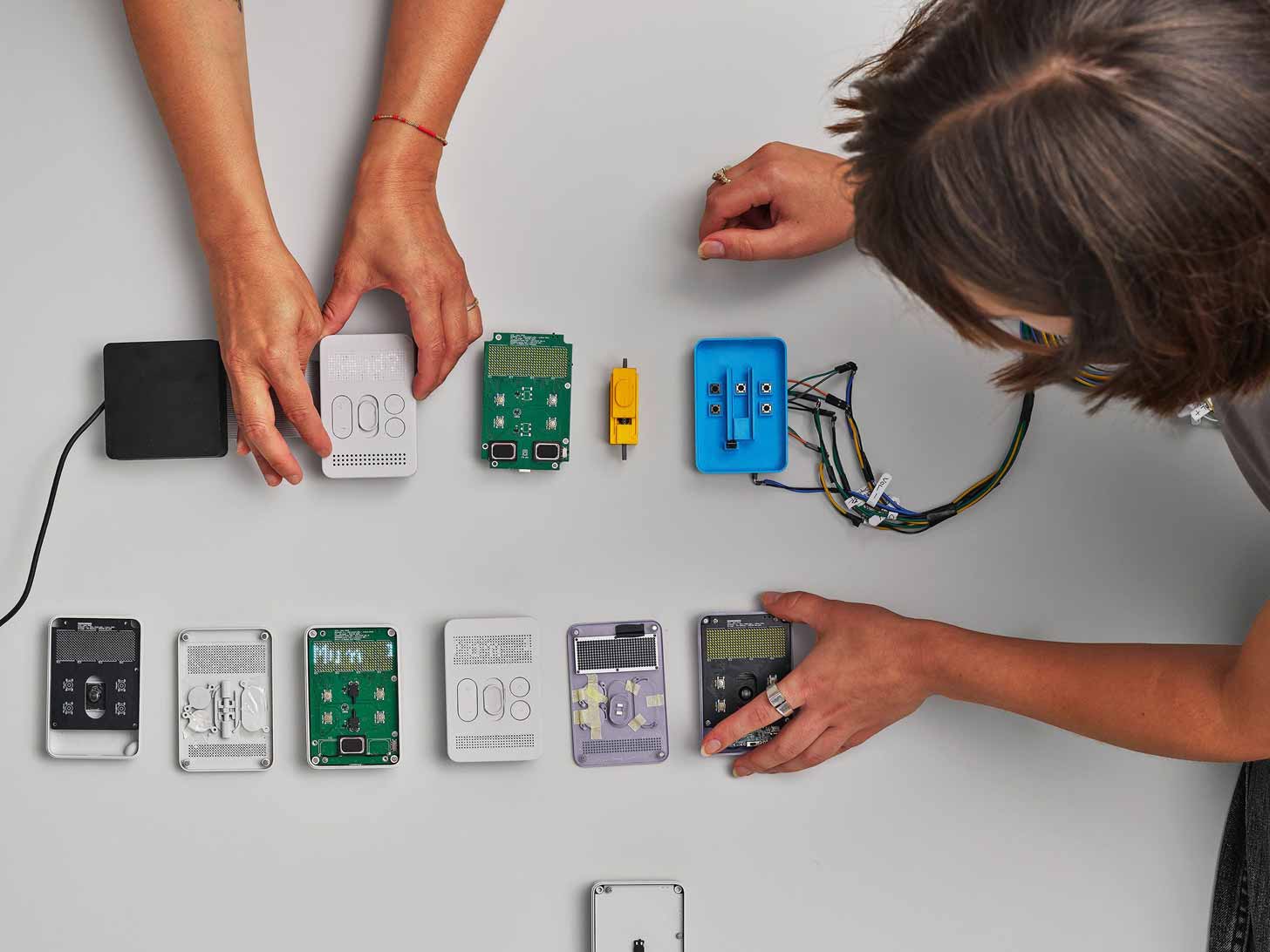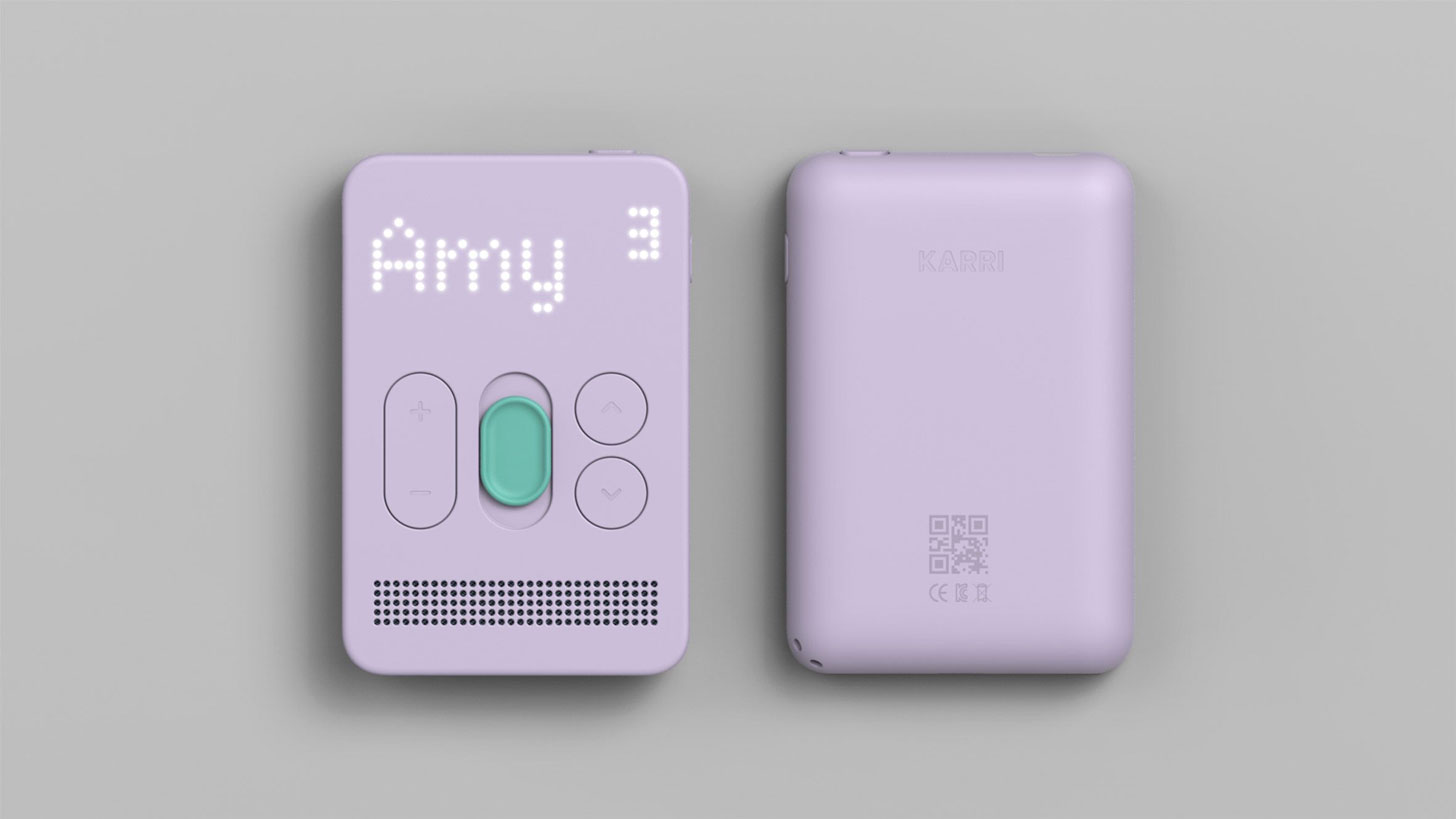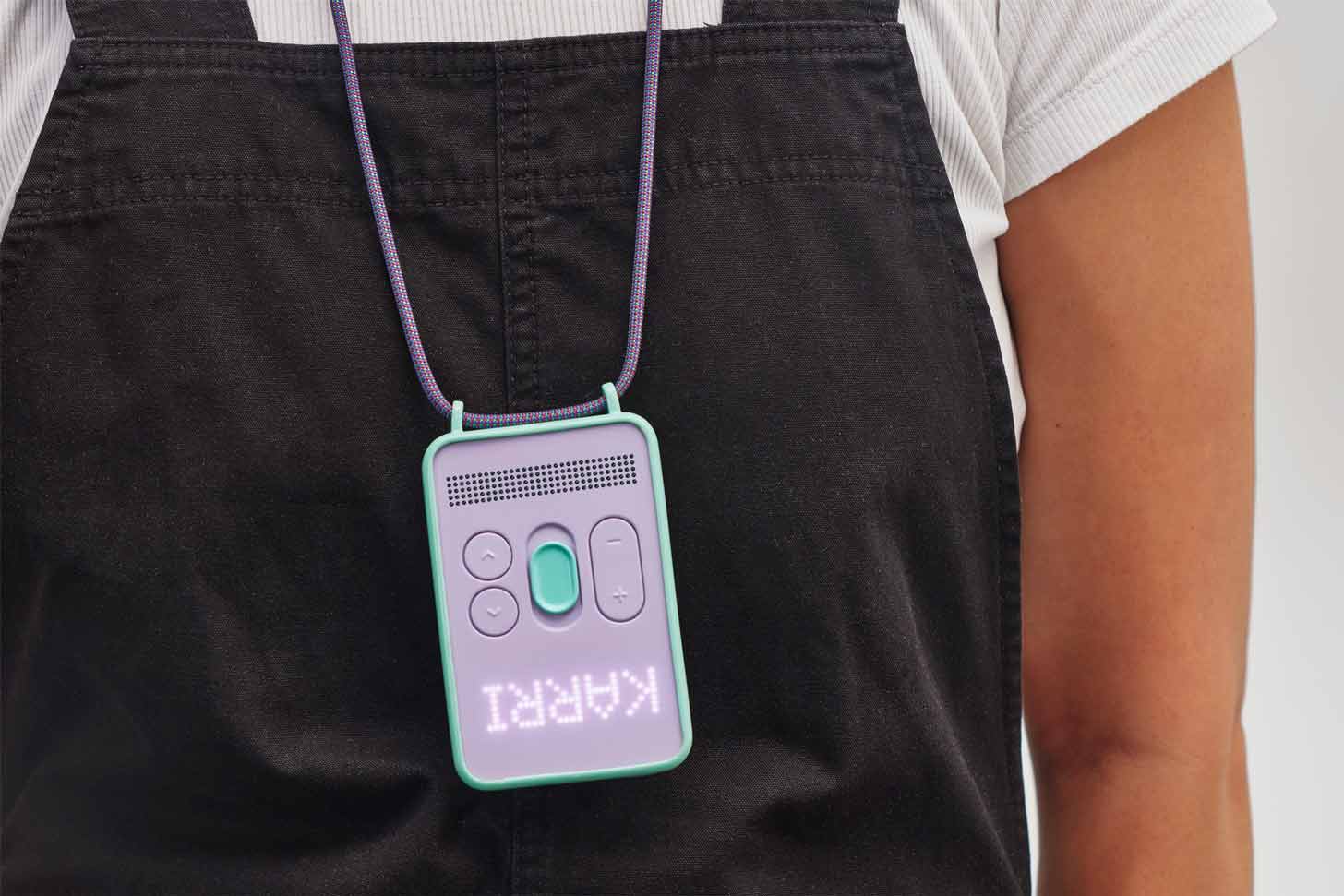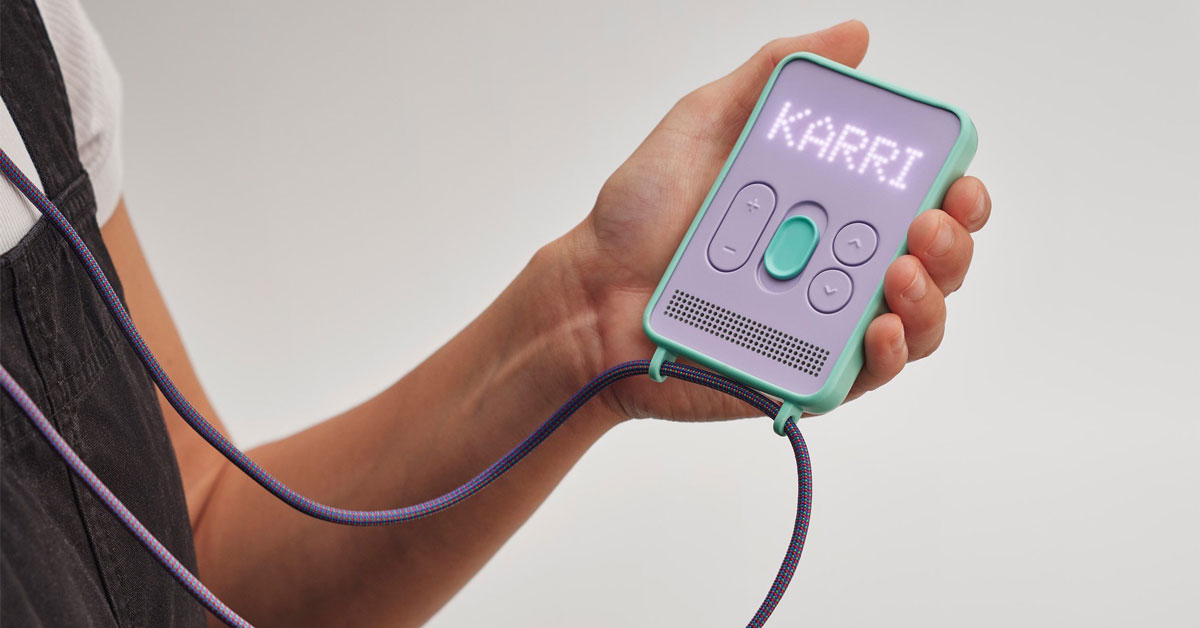As parents seek to decrease digital distractions from their kids’ lives, and researchers suggest that smartphones are not safe for children under 13, a new middle ground must emerge: How do we use technology to foster healthy growth and independence in young people without all the downsides of smartphones?
Tech company Karri has an idea.
A startup based in the United Kingdom, Karri has created a “smartphone” for kids. Except it isn’t much of a smartphone at all.

Designed for kids aged five to 13, Karri’s Messenger is inspired by the “simplicity of a walkie-talkie,” and gives kids the capability to chat with loved ones, minus the distractions of a touchscreen device.
Karri’s founder, Pete Clifford, conceptualized the device in 2020 when he was struggling to figure out how to manage smartphone culture with his then-seven-year-old son.
“I knew he wanted to walk to school by himself or go meet his friends a few streets away but I was also nervous about not knowing where exactly he would be and not being able to get in touch,” Clifford told Dezeen.
“After some research and not finding a child-friendly, screen-free solution that was working reliably everywhere I came up with the idea of starting Karri.”

The first Karri device was released in May 2024, and the company’s newest iteration, designed in partnership with the firm Pentagram, will reach mass markets in 2026.
It works very simply: The device is operated by a SIM card and allows kids to send voice memos to parents or guardians, who can listen and respond via a complementary Karri app on their own smartphones.
The Karri Messenger does not have its own phone number and only works with a paired mobile app on a parent or loved one’s phone. That means strangers can’t contact kids through the device, and parents can see the location of their child, as well as the device’s battery level and network status from their end only.
Parents can also set up safe areas or “geo fences” for their children and will be notified if they move outside of these boundaries.

“As KARRI prepares for shipping the new device later this year, the company is proud to be at the forefront of an entirely new category in out-of-home, voice-driven child communication,” a press release from the company states.
“This device is more than just a piece of technology, it represents a commitment to promoting healthy childhood development while maintaining essential family connectivity.”
For kids, using the Messenger is easy. The minimalist design includes a simple dot matrix display, a speaker, and a “slide to talk” button in the center. All they have to do is slide down to listen to a new message, or slide up and hold to record a reply.

Pentagram was tasked with market research to understand the best ways to fit the needs of young people and their parents today.
“One of the key insights from the research was the need to develop a simple interface for kids to record, listen to and send messages as intuitively as possible,” the agency said.
“The result is the 'slide to talk' button, a single tactile interface for four actions: record, listen, send or delete, inspired by the simplicity of the push to talk button on a traditional walkie talkie, or the slide-to-talk on smartphone communication apps.”
The Messenger’s LED matrix panel also displays basic information like contact names or user instructions, and it’s able to host multiple chat channels, so all the aunts and uncles can get in on the action. Additionally, the device contains a flashlight and buttons for volume control and channel selection.

The newest iteration of the device is also smaller than its original and can be outfitted with a silicone case and lanyard for easy carrying. It’s also reportedly waterproof.
And it comes at a moment of “digital detoxing” among people of all ages. But parents and educators are specifically looking for alternatives in a world increasingly more likely to go phone-free.
“The Smartphone Free Childhood movement, gaining traction across the U.K. and internationally, highlights growing concerns about the impact of unfiltered internet access on young minds,” a press release from Karri explained.
“Over 140,000 parents representing 13,500 schools have committed to delaying smartphone use until at least age 14, signaling clear demand for safe and effective solutions like KARRI.”

In the United States, school districts that have implemented phone bans are seeing increased rates of library checkouts, indicating a readiness among students to ditch the phones for physical media.
The walkie-talkie nostalgia of the Karri Messenger could be the “dumb phone” consumers are looking for.
Karri’s second-generation Messenger is currently listed online at £90, or $121 U.S. dollars, and is slated to ship this Christmas. Pre-orders come at a reduced price of £50 (or $67).
Membership plans start as low as £1.79 ($2.40) a month for U.K.-only use on a 2-year contract, though pricier options are available for worldwide use and other features.
The device comes in four color ways: Fairytale (lilac purple), Rocket Pop (cobalt blue), Ocean Bounce (teal green), and Dark Phantom (dark grey).
You may also like: To combat the youth mental health crisis, this school district lets students text a therapist for free
Header image courtesy of Pentagram/Karri



